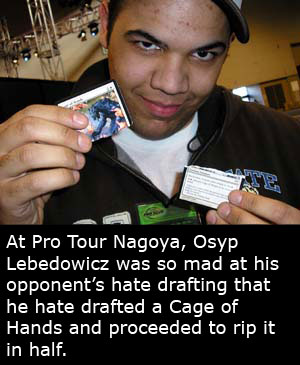
Highlights of this article include the following...

But those are just the highlights. There is more to this piece than poker, beer, and a sexy lady. I'm sure many of you would agree with me that I don't really need much more than that as far as content goes, but here at Salvation we like to go that extra mile.
This article went through many transformations with the original version being my logically straightforward candid authoritive know-it-all style clearly stating exactly what I was going to talk about.
Don't worry; you don't get to read that version.
This article starts with the sound of me cracking a fresh, cold beer, more specifically, a Pilsner. In fact, a third of it is gone as I finish this sentence, but I'm getting ahead of myself. I started work this morning at eight early bells in the morning. Before I got to work, I enjoyed a rushed shower without water pressure and no breakfast so that I wouldn't miss the car pool to work. A great start to a Friday. So we'll pause there for a moment and get some boring stuff out of the way and answer a few of your questions.
What is Tilt?
Tilt, often associated with poker, is when one stops playing logically and starts playing emotionally resulting in a negative impact on the game.
Interesting Fact: There are no more poker references after this point in the article.
And so as the work day progresses I'm hammering away at one project while being interrupted constantly to be assigned more projects, solve minor problems and answer the phone. My energy is artificially induced by a thick sludge coloured beverage without cream or sugar that my employers are kind enough to provide.
Half of an IGA made today sandwich with a somewhat cold Pepsi and some bantering on Salvation forums for an hour is a welcomed and much needed lunch break. Then I'm back into the grind again.
The project from the morning unfinished, but forgetten as an endless sea of new, higher priority problems are thrust at me resulting in an afternoon of running all over the place. The only forseeable benefit being that I get the exercise from walking over 50 flights of stairs.
Finally, the work day ends. I'm packed up and ready to go. I walk over to shut down the final computer and then I see them and I remember. An erratically piled stack of three cds and I can't leave until they are done.
I'm now on Tilt.
The Two Sides of the Tilt Coin
1. Anger
Your heart has begun beating fast enough that you are now aware of it. Anger Tilt is almost always associated with a situation that resulted in you feeling cheated.
The Danger:
You will be prone to playing extremely quickly which increases your chance of skipping something important to do at the end of your opponent’s turn or during you own upkeep. With many creatures on the board, you are more likely to just go for an alpha strike rather than correctly analyzing your board position. With a few creatures on the board, you are more likely to just say go without considering an attack. Worst of all though, when you draw cards, your opponent is going to know what you have simply from the reaction on your face.

Dealing with it:
Take a deep breath, ignore the rest of the world for a moment, and slow down your play.
2. Defeat
You lose that energy or happiness that you usually feel when you are in that magic zone. This one often happens after a mistake on your part, but can also happen after your opponent makes a number of plays that result in his board position looking extremely advantagous. The worst reason why this happens though is because you just looked at the pairings for the next round and you know you are facing an opponent that is a far greater Magic player than yourself.
The Danger:
You will be reluctant to call a judge in odd situations. You will try to play too safe believing that your opponent has every card for every situation. You will be reluctant to go for an alpha strike.
Dealing with it:
You have to get back your confidence. Tell yourself that you are going to win. Remember above all else, though: call a judge.
20 minutes later the task is done, but I've done it super fast and god knows there could be numerous problems with my solution. I don't care though. I'm already out of the building walking home having rejected three or four opportunities to get a ride because not only am I on tilt, I know it. I've been walking for 15 minutes and I know I'm not even half way home yet, even worse, I'm still on tilt. Anger Tilt. Thoughts are racing through my head and I know I'm about to re-write all the work I've put into this article. When I'm only 5 minutes away from home I remember that there is a liquor store coming up in a block. I quickly stop in, doing my best to remain pleasant so they don't ID me because I know this will just bother me even more, and a few minutes later my feet are smacking the icy -3 degree pavement of a warm Canadian winter.
I unlock my mailbox, forcing myself to not throw out its contents, and lumber up the three flights of stairs to enter my humble apartment. I throw my jacket on one chair and my keys, mail, and wallet on the coffee table. A few minutes later I savagely rip open my case of Pilsner from the wrong end. I sit down at my computer, my LCD monitor lighting up my bare chest, and with a beer in hand I begin to write this article.
The Results
Even if you have never heard the term before, you will have experienced the results from being on tilt.

• You don’t mulligan when you should.
• You forget to play spells at the end of turn.
• You forget to do something during your upkeep.
• You forget to attack.
• You start getting mad at your opponent for little or no reason.
• You forget to add a card removed from play to your deck for the next game.
• You over-extend and simply hope they don’t have the Wrath of God.
• You forget about dredge cards in your graveyard.
• You give up when they play their bomb.
• You rip a card in half.
You made a mistake, now what?
You have to accept that your chance of winning the game has decreased, but the next time you get priority you have to stop and analyze the board. You aren't going to have the convenience of being able to just walk away from work for the weekend to cool down. Halt your opponent during his upkeep if that is what it takes, but regardless you need to have a new game plan. Developing a new game plan can be as simple as the following:
1. What was my plan?
2. What has changed?
3. What is my new plan?
Only after you have answered all those questions should you tell your opponent that you are ready to continue. You might find this silly and it might frustrate your opponent (never a bad thing), but if you don’t do this you run the risk of making more mistakes, or worse yet, throwing away a game you still could have won.
Avoiding Tilt
There are many things that apply to Magic that one can take away from the tiny fragment of my 8 to 5 life. (9 to 5, what a dream.)
1. I only got 7 hours sleep and had to rush through my morning. A good night's sleep with extra time to clearly plan out your day will make you much more resiliant to tilting.
2. I didn't eat breakfast and I had a light lunch. Food provides your body with energy. If I had only ate breakfast or had a large lunch, I would have had more energy for the end of the day. When you are completely drained of all mental ability you are extremely likely of going on tilt.
3. Even though I didn't say it, you can probably infer from the story that I blamed someone else for the fact that I had to stay later at work to finish the small task. Analyzing your play is key so that you understand the mistakes you made and can avoid making those same mistakes in the future. I forgot to finish the task earlier that morning and even though I was assigned too many projects that doesn't change the fact that it was my responsibility to do it.
4. Just like life, Magic isn't always fair. Even though I shouldn't have had so many projects to do that doesn't change the fact that I still have to do them. You have to accept that bad magic players are going to be able to use the same good cards as you. They are going to make mistakes, but they are also going to accidently make amazing plays. They are going to top deck unreal stuff and sometimes you are just going to have zero chance of winning. Accept these things and always play like your opponent is going to make the correct play otherwise you will end up being on tilt for game 2 and 3 or possibly even for the remaining rounds of the tournament.
5. By going to the liquor store and buying a case of beer, I went for the quick fix. If you go for the quick fix in Magic by making quick decisions and start taking unnecessary risks you are going to end up losing to cards like Awe Strike over and over again. So if you drink to drown out your problems, it's sometimes going to work, but other times you are going to end up calling your girlfriend in a drunken stupor and killing a perfectly good relationship (One of the few examples of this article I can happily say isn't from first hand experience). So just like drinking beer to solve problems, you will end up winning a few games you shouldn't have by using the quick fix style of play, but that won't even close to equal the number of games you could have won, but lost instead by this approach.
Just like my beer, this article is done. I'll do you guys all a favour and edit it before I crack the second. Okay, maybe before I crack the third. Whatever, screw you guys, I'm still on tilt!
Comments